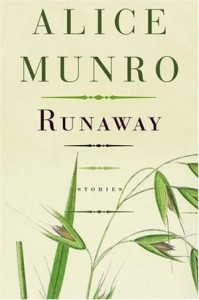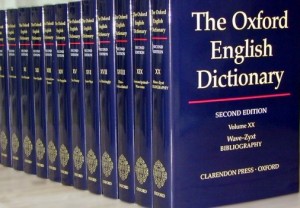For the last couple of years, Who Are These People Anyway? has been happy to share summer reading plans with you: what we’re reading, what we think you should read, and how we did with last year’s resolutions. Here’s the 2015 installment; just peruse the WATPA? archive if you want to read the older ones.
Stephanie Roach
My reading list this summer includes Tana French’s The Secret Place. I have a thing for reading debut novels and got totally hooked by French’s debut In the Woods. I’ve enjoyed each book after even more (The Likeness, Faithful Place, Broken Harbor), and I’ve heard The Secret Place is the best yet of her literary mysteries.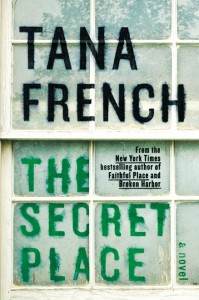
Last summer I planned to read S. by J.J. Abrams and Doug Dorst and that is the book I would recommend. It is a fascinating study in how characters are developed, how suspense is built, and how we think about the book as an object. Reading this book is unlike any other reading experience I’ve ever had. This review in The Guardian includes a short video clip of what it is like to unfold the pages of S.: . If you are looking for something different, unique, complex, and nerdy-cool, then this is your book.
Fred Svoboda
What’s on your summer reading list? More John Updike as (I hope) I finish my book on him for University of South Carolina Press. I’ll be reading mysteries and histories as my breaks from serious fiction.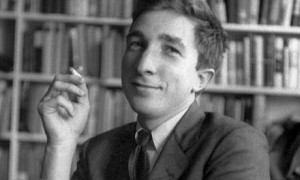
What you hope your students read this summer: I want them to read all the novels for the courses that they are taking from me in the fall, so that they can have the pleasure and insight of rereading during fall semester. (Also, this will help obviate suicidal feelings while faced by the likes of Moby-Dick and The Portrait of a Lady, big, big 19th century novels.) I always email the reading lists to enrolled students at the beginning of the summer.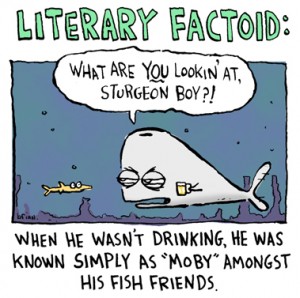
How your planned reading from last summer went: I didn’t even turn in a reading list last summer. I had too much to do!!
James Schirmer
On my reading list:
- H Is For Hawk, by Helen MacDonald
- Girl In A Band, by Kim Gordon
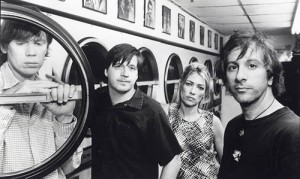
- A Stranger In Olondria, by Sofia Samatar
- Americanah, by Chimamanda Ngozi Adichie
What I hope students read this summer:
Moby Dick, by Herman Melville
I came late to this book, but I’ve been rereading every year for the past three years now. Great characters in a great story & technical communication in the service of a narrative!
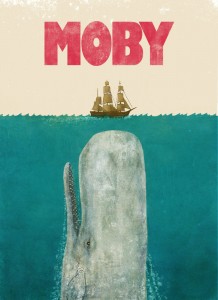
Cathy Akers-Jordan
My Utopian dreams for the summer involve more writing than reading but I am currently re-reading Ray Bradbury’s Dandelion Wine 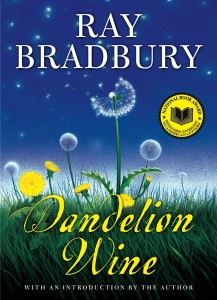 and considering the possibility of doing a composition class using the book as the theme. I like it because it deals with all the big questions of life, love, fear, death, wonder, joy and everything else you can think of. It’s the one book I’d like my students to read this summer, too, for a vivid immersion into early-twentieth-century life (BEFORE the Internet! Gasp!) through savory, lyrical language they’ve probably never experienced before. For me reading a Bradbury book is like eating potato chips: you can’t read just one. Next on the reading list are Something Wicked This Way Comes, One More for the Road, The Toynbee Convector, Dark Carnival, The Machineries of Joy, I Sing the Body Electric and many of his other wonderful story collections.
and considering the possibility of doing a composition class using the book as the theme. I like it because it deals with all the big questions of life, love, fear, death, wonder, joy and everything else you can think of. It’s the one book I’d like my students to read this summer, too, for a vivid immersion into early-twentieth-century life (BEFORE the Internet! Gasp!) through savory, lyrical language they’ve probably never experienced before. For me reading a Bradbury book is like eating potato chips: you can’t read just one. Next on the reading list are Something Wicked This Way Comes, One More for the Road, The Toynbee Convector, Dark Carnival, The Machineries of Joy, I Sing the Body Electric and many of his other wonderful story collections. 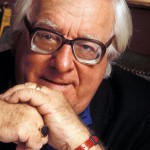
Some of his books are listed here.
On my summer reading list is Simon Winchester’s The Meaning of Everything: The Story of the Oxford English Dictionary. This book was passed down to me from my uncle, who besides being an accomplished teacher and researcher, was my inspiration to study linguistics. Many thanks, Uncle Fred!
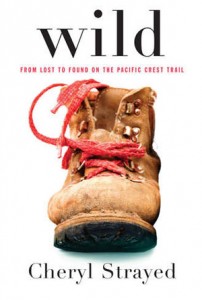 I hope students will read Wild: From Lost to Found on the Pacific Crest Trail, by Cheryl Strayed, because it is a beautiful true story of strength and hope. When I read it two years ago, before the movie had been made, I yearned to explore the PCT. That yearning grew with every page-turn, despite the hardships and lost toenails Strayed describes. Last year, my husband and I hiked just a very few miles of the PCT through desolation wilderness (near Lake Tahoe) and it was just as challenging and beautiful as she describes. Now, having just moved to Flint from Northern California, I will admit I miss the Sierra Nevada mountains, but look forward to backpacking in the UP this summer. Students, if you have an opportunity to hike any part of the PCT, do it! But prepare better than Cheryl Strayed, and pack lighter.
I hope students will read Wild: From Lost to Found on the Pacific Crest Trail, by Cheryl Strayed, because it is a beautiful true story of strength and hope. When I read it two years ago, before the movie had been made, I yearned to explore the PCT. That yearning grew with every page-turn, despite the hardships and lost toenails Strayed describes. Last year, my husband and I hiked just a very few miles of the PCT through desolation wilderness (near Lake Tahoe) and it was just as challenging and beautiful as she describes. Now, having just moved to Flint from Northern California, I will admit I miss the Sierra Nevada mountains, but look forward to backpacking in the UP this summer. Students, if you have an opportunity to hike any part of the PCT, do it! But prepare better than Cheryl Strayed, and pack lighter.
Jacob Blumner
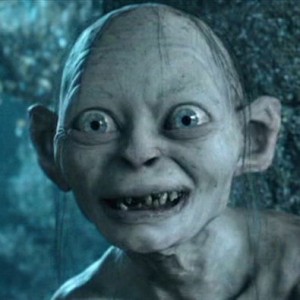 My summer reading list includes JRR Tolkien’s The Hobbit and the Lord of the Rings trilogy. I’m rereading them as our twins discover them. It seems, though, that I will need to find things to add to the list quickly because they read The Hobbit already — in about two days. Suggestions? I also want to read Last Child in the Woods, by Richard Louv, since I’m an outdoor enthusiast and want to find ways to rationalize my values.
My summer reading list includes JRR Tolkien’s The Hobbit and the Lord of the Rings trilogy. I’m rereading them as our twins discover them. It seems, though, that I will need to find things to add to the list quickly because they read The Hobbit already — in about two days. Suggestions? I also want to read Last Child in the Woods, by Richard Louv, since I’m an outdoor enthusiast and want to find ways to rationalize my values. 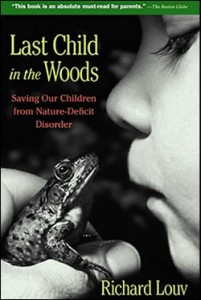
I hope students read at least one novel this summer, preferably the paper kind. There is beauty in the meditative experience of losing oneself in a physical book.
D. J. Trela
Last summer I worked my way through a number of biographies, and want again to tout Walter Isaacson’s biography of the late Steve Jobs. To my mind, this is one of the finest contemporary biographies to appear in the last twenty years. My students last fall were fascinated by the story of a College drop-out who changed the world with his computers, I-phones, Pixar movie technology and I-pads/pods. Practically everything we do with technology not only has Steve Jobs’ fingerprints all over it, but his DNA in its design. That said, he was often an insensitive jerk. Go figure.
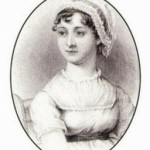 For summer 2015 my reading will again primarily be prep-work for fall classes. I am two thirds of the way through all of Jane Austen’s six completed novels, all but one of which (in my opinion) is “perfect, in being far too short.” To find out which one you’d need to enroll in my fall senior seminar in English. (Clue: It isn’t Emma.) For at least a couple of novels in the course itself, we’ll take a close look at Austen’s incomparable narrative and dialogue and see whether Hollywood offers any improvement on her storylines.
For summer 2015 my reading will again primarily be prep-work for fall classes. I am two thirds of the way through all of Jane Austen’s six completed novels, all but one of which (in my opinion) is “perfect, in being far too short.” To find out which one you’d need to enroll in my fall senior seminar in English. (Clue: It isn’t Emma.) For at least a couple of novels in the course itself, we’ll take a close look at Austen’s incomparable narrative and dialogue and see whether Hollywood offers any improvement on her storylines.
Last summer I also mentioned wanting to read Five Came Back, which dealt with how WWII experiences influenced the post-war film-making of five classic Hollywood directors. This was an insightful work that helped me take fresher looks at films directed by Frank Capra, John Ford and Howard Hawks. I highly recommend the book for devotees of classic Hollywood films.
While I’m not a great reader of magazines, I subscribe to (and recommend) The New Yorker to any and all. The articles are thoughtful, often offbeat, always intelligently written, and sometimes memorable.
And, along the lines of the Woody Allen character Zelig, maybe one of these summers I’ll read Moby-Dick.
Scott Atkinson
My list is ever-changing, but here’s what I’ve led myself to believe I’ll be reading in the coming months.
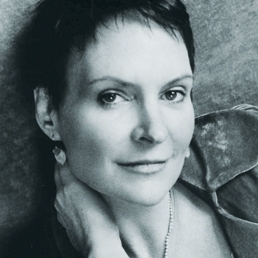 First on the list–which I’ve actually started–is whatever I can find by Antonya Nelson. I was unaware of her until recently, when a friend invited me to audit a short fiction writing workshop she’s leading. The plan was just to look like I’d been reading her all along so I could appropriately kiss up, but I’m enjoying her stories immensely so far.
First on the list–which I’ve actually started–is whatever I can find by Antonya Nelson. I was unaware of her until recently, when a friend invited me to audit a short fiction writing workshop she’s leading. The plan was just to look like I’d been reading her all along so I could appropriately kiss up, but I’m enjoying her stories immensely so far.
I also want to read a lot of Roddy Doyle, who I discovered on The New Yorker Fiction Podcast recently. I’ve read his first novel, The Commitments, but want to read more of his stories as well. I just started a recent novel of his, The Guts, trying to read it alongside other things (like Nelson), which I’m horrible at doing.
Joseph Mitchell is very much on the list. I’ve read some of his book My Ears Are Bent which is a collection of his pre-New Yorker journalism, and I just ordered, Up in the Old Hotel, a collection of his journalism for The New Yorker. There’s also a new biography out that is on my wish list for Father’s Day. As a journalist I’d love to (pretentious as it sounds) explore Flint the way he explored New York. I’ll probably re-read Joe Gould’s Secret just because, well, if you’ve ever read it, you’ll know.
I recently met K.M. Zhart, a Flint guy who started the literary journal Old Northwest Review, and I’ve been meaning to read his novel Old Man Outlaw. I’m also planning on reading UM-Flint lecturer Andrew Morton’s award-winning play, Bloom, which I regrettably didn’t see when it was being performed in town.
What do I hope my students read? Everything.

As for last year’s reading list, who knows? You should have seen my general 2015 reading list, which was ambitious enough to include among other things, everything by David Foster Wallace. That’s a mountain I’ll be climbing for a while.
Steve Bernstein
My reading plans are only slowly coming into focus, but so far I want to finish a book of literary theory, Caroline Levine’s Forms, and then move onto Orhan Pamuk’s The Museum of Innocence (which my wife has encouraged me to read for many summers). I’m also hoping to squeeze in volume 1 of Karl Ove Knausgaard’s My Struggle so I’ll know what all the buzz is about.
My goal last summer was to complete my two-summer project of reading Marcel Proust’s In Search of Lost Time. I did it! Proust is amazing, and really: just read him.
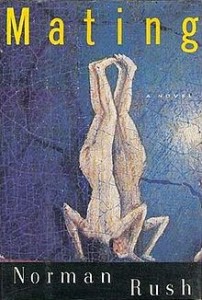
But my recommendations this summer are these: anything by Norman Rush and/or Alice Munro, two of the best contemporary writers around. For Rush, especially Mating, and for Munro, especially Runaway.